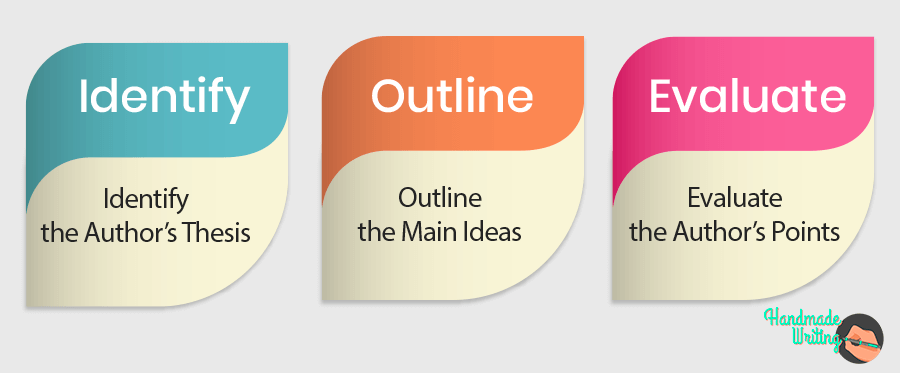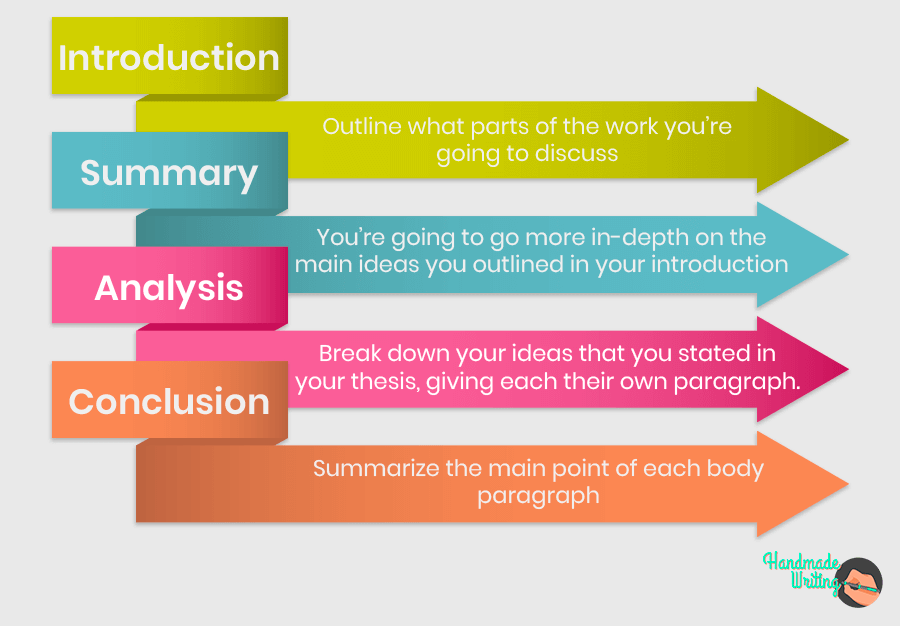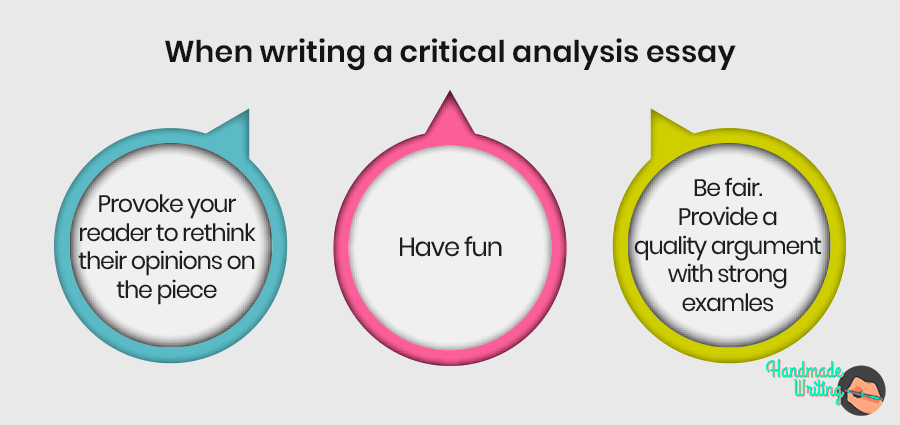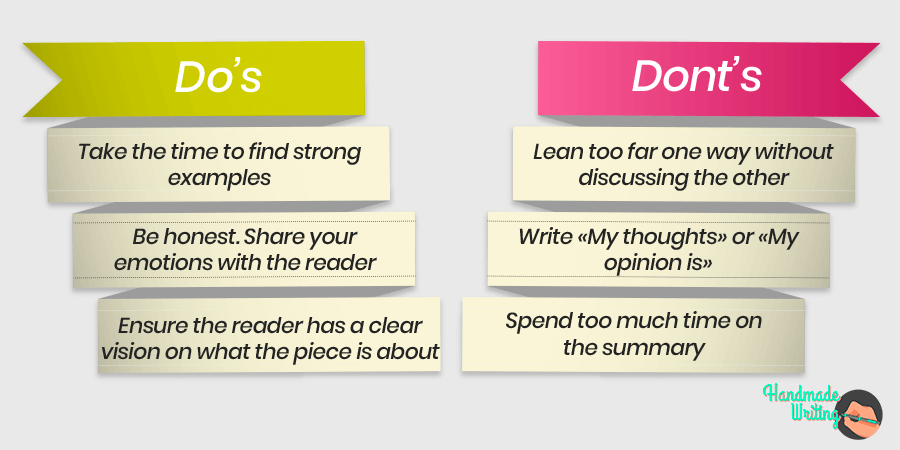What is a Critical Analysis Essay?
A critical analysis essay puts you, the writer, in the position of judging creative work. Generally, these essays cover what you believe the work did well and what it did wrong while adding some personal insight. You will use examples from the piece to support your claims.

Having problems with your critical analysis? Our essay writer help provides services 24\7!
How to Start A Critical Analysis Essay
Before you start the writing portion of your essay, you’ll need to spend some time with the creative work and get a good idea of the messages it attempts to portray.
Identify the Author’s Thesis
What is the main message behind the creative piece? Identify what the author is trying to argue. Which side of the argument do they fall on? Do they offer solutions to the argument or simply present to show awareness? This isn’t always clear in the work, and some outside research may be needed to fully understand the message.
Outline the Main Ideas
Go through the piece and note down any overarching messages. How does the creator appeal to your emotions? Is it done effectively, or could it have been done better? In most creative works, all of the main ideas come together to form the thesis statement.
A good way of searching for these is to work backwards from the previously established thesis. View the piece with the thesis in mind, and jot down each and every point that contributes to it.
Evaluate the Author’s Points
Summarize these points and state how well they support the thesis. Are they the strongest possible arguments for the thesis? What examples does the creator present against the thesis? Are they fair and objective, or do they lean heavily to one side? Like a good critical analysis, a good creative piece evaluates all sides of the presented argument and supports each side with evidence.
Check this guide in case you need to learn more about a rhetorical analysis.
Organizing your research into an outline is the best way to prepare for the writing. A proper outline will allow your writing to flow and give you a structure to adhere to.

How to write a Critical Analysis Essay Outline:
Introduction
When starting a critical analysis essay, you need to state the name of the creative work, the creator, and any relevant publication/distribution details. Then, outline what parts of the work you’re going to discuss. This is when you should introduce the creator’s thesis and how they supported that thesis.
Once that’s done, end the introduction with your thesis statement. Your thesis should consist of your original thoughts and reactions to the creation and its message. Come up with a main idea about the work and use different examples from it to support your statement.
This is your opinion and it should not be the same as the creator’s thesis. A good thesis example would state what the creator’s argument is, and then what it does well/badly and how it accomplishes that.
Summary
Here, you’re going to go more in-depth on the main ideas you outlined in your introduction. Break down what the piece is about. Talk about the characters, the themes, how the creator utilizes these to show their vision and argue their points.
Pretend the reader hasn’t been exposed to the piece of creative work. Don’t hold back, show them what the piece is so they can understand where you are coming from.
Analysis
The part you’ve waited for. The analysis is broken into multiple body paragraphs, much like other types of essays. Break down your ideas that you stated in your thesis, giving each their own paragraph. Do your best to state both positive and negative parts of the creative work. If you really feel strongly one way or the other, highlight the opposite feeling early on before getting into your opinions. If you hate the film, discuss what it did well at the beginning of your analysis, then get into what it did wrong.
When breaking down your ideas, be sure to discuss the three different types of appeals:
- Ethos: How the creator shows their credibility in their art. Why should they be trusted, or how did they fail to establish credibility?
- Pathos: All art is based on emotion. How did the creators work to appeal to your emotions specifically? Did you agree with how the creator wanted you to feel, or did they miss the mark completely?
- Logos: How does the creator use logic to get you on their side?
At the end of your analysis paragraphs, your paper should clearly state your thoughts and opinions on the creation, have those thoughts supported with examples from the piece, and address whether or not the creator achieved their goal.
Conclusion
Restate your thesis. Say it in a different, but similar, way to reaffirm it. Summarize the main point of each body paragraph, strengthening your thesis even more. Finally, your conclusion should show what the reader shall take away from the creation:
- You shouldn’t watch this movie because it’s offensive to all genders.
- You should read this book because it is an incredibly informative retelling of the Watergate scandal
While working on the planning and pre-planning stages of your essay, be sure to keep these tips in mind for a stronger end product:

Critical Analysis Essay Writing Tips from HandmadeWriting
- Provoke your reader to rethink their opinions on the piece. Strive to make your opinion so sound that they have no choice but to consider it.
- Be fair. If you’re just whining or mindlessly praising the piece, no one is going to take your analysis seriously. Provide a quality argument with strong examples. Create a strong foundation for your opinion.
- Have fun. You’re speaking your mind on a creation. Really get into why you feel the way you do. If you’re having fun, it will show, and the reader will too. Check out our paper writing guide to learn how to write other essay types.
And finally, check your essay upon completion and make sure it follows these guidelines. If it does, you’re set:

Do’s and Don’ts From Our Writing Team
Do’s:
- Take the time to find strong examples both for and against your argument.
- Ensure the reader has a clear vision on what the piece is about before you get into the analysis.
- Be honest. Share your emotions with the reader. It will build a stronger argument, and an apt reader will see right through you being fake.
- Research the piece. Reading up on it will give you some insight you may not have considered, leading to a stronger argument.
Dont’s:
- Lean too far one way without discussing the other.
- Write “My thoughts” or “My opinion is”. Just state your opinions.
- Use first or second pronouns. Say “the audience” or “the reader”.
- Spend too much time on the summary. Your analysis should be the biggest part of your paper.









